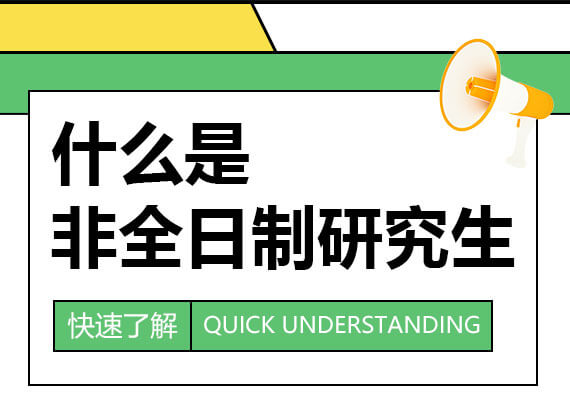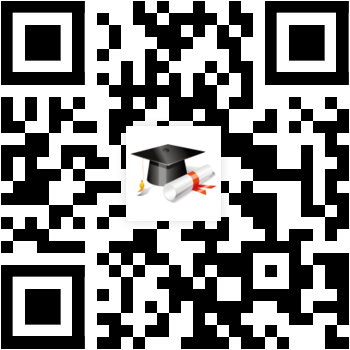2013年同等学力申硕英语考试真题(A卷)
来源:在职研究生招生信息网 发布时间:2017-09-06 14:33:08
为了准备参加2018年同等学力考试的学员更好的复习备考英语,提升复习效率和对知识点的掌握程度,下边是中国在职研究生招生信息网专门为大家整理得2013年同等学力申硕英语考试真题及答案,供大家参考。
Part 1 Oral Communication (10 points)
Section A
Directions: In this section there are two incomplete dialogues and each dialogue has three blanks and three choices A,B and C, taken from the dialogue. Fill in each of the blanks with one of the choices to complete the dialogue and mark your answer on the Answer Sheet.
Dialogue One
A. It sounds like a flu.
B. I also advise resting for a couple of days.
C. Boy, when it rains, it pours.
Doctor: What has been bothering you?
Patient: I have a stuffy nose and a sore throat. Plus, I’ve been coughing a lot.
1
Doctor: Any stomach pains?
Patient: Actually, yes. My stomach’s been upset for a few days.
Doctor: 2 It’s been going around lately.
Patient: Anything I can do for it?
Doctor: I’ll prescribe some medicines for you to take. 3
Patient: Does that mean I shouldn’t go to work?
Doctor: Only when you feel up to it. You should stay home for at least a day or two.
Dialogue Two
A. So, what are you going to do with the money?
B. You have lots of money.
C. How much do I owe you?
Joshua: Dad. Allowance day. Can I have my allowance?
Father: Oh. I forgot about that.
Joshua: You ALWAYS forget.
Father: I guess I do. 4
Joshua:Just $13.
Father: Well, I’m not sure if I have that much.
Joshua: Go to the bank. 5
Father: Lots of money, uh? Uh, well. I think the bank is closed.
Joshua: Then, what about your secret money jar under your bed?
Father: Oh, I guess I could do that. 6
Joshua: I’m going to put some in savings, give some to the poor people, and use the rest to buy books.
Father: Well, that sounds great, Joshua.
Section B
Directions: In this section there is one incomplete interview which has four blanks and four choices A, B, C and D, taken from the interview. Fill in each of the blanks with one of the choices to complete the interview and mark your answer on the Answer Sheet.
A. Nationalities stay in their own areas.
B. People don’t queue like they do here in England.
C. What I liked best was that I could work and still lead a normal life.
D. Some supermarkets are open twenty-four hours a day.
Interviewer: How long did you live in the Slates?
Interviewee: I was there for two years, in New York, and I enjoyed it tremendously.
7 I mean, the shops are open till 10:00 p.m.
Interviewer: All shops?
Interviewee: Yes, everything. Food shops, chemists, and department stores.
8 And on public holidays, only the banks are shut.
Interviewer: I see, um... Do you think New York is as multinational as Loudon?
Interviewee: Oh, that's for sure. But it’s not as mixed. 9 like there’s Russian sec-
tion, the German section and China Town. But I think the major difference between these two cities was the height of the place. Everything was up in the Big Apple. We lived on the thirty-fifth floor. And of course everything is faster and the New Yorkers are much ruder.
Interviewer: Oh! In what way?
Interviewee: Well, pushing in the street, fights about getting on the bus. 10 And of course the taxi drivers! New York taxi drivers must be the rudest in the world!
Part II Vocabulary (10 points)
Directions: In this part there are ten sentences, each with one word or phrase underlined. Choose the one from the four choices marked A, B, C and D that best keeps the meaning of the sentence. Mark your answer on the Answer Sheet.
11. I read the newspaper every day so that I can stay informed about current events.
A. important B. international
C. latest D. cultural
12. After seven days in the desert, the explorer was relieved when he eventually found water.
A. predictably B. finally
C. luckily D. accidentally
13. When we gave the children ice cream,they immediately ceased crying.
A. started B. continued
C. resumed D. stopped
14. The science teacher demonstrated the process of turning solid gold into liquid.
A. showed B. elaborated
C. devised D. simplified
15. John’s application for admission to graduate studies in the School of Education has been approved.
A. entrance B. acceptance
C. experience D. allowance
16. Most college students in the United States live away from home.
A. apart B. down
C. elsewhere D. along
17. The pursuit of maximum profit often drives manufacturers to turn out things that can do harm to people’s health.
A. preserve B. promote
C. process D. produce
18. Many different parts make up an airplane: the engine(s), the wings, the tail, and so on.
A. compose B. decorate
C. construct D. derive
19. You make it sound as if I did it on purpose.
A. carefully B. unwillingly
C. incredibly D. deliberately
20. He could never have foreseen that one day his books would sell in millions.
A.understood B. explained
C. expected D. believed
Part III Reading Comprehension (25 points)
Section A
Directions: In this section, there are four passages followed by questions or unfinished statements, each with four suggested answers A, B, C and D. Choose the best answer and mark your answer on the Answer Sheet
Passage One
Five or six years ago, I attended a lecture on the science of attention. A philosopher who conducts research in the medical school was talking about attention blindness, the basic feature of the human brain that, when we concentrate intensely on one task, causes us to miss just about everything else. Because we can’t see what we can’t see, our lecturer was determined to catch us in the act. He had us watch a video of six people tossing basketballs back and forth, three in white shirts and three in black, and our task was to keep track only of the tosses among the people in white. The tape rolled, and everyone began counting. Everyone except me, I’m dyslexic (有阅读障碍的),and the moment I saw that grainy tape with the confusing basketball tossers, I knew I wouldn’t be able to keep track of their movements, so I let my mind wander. My curiosity was aroused, though, when about 30 seconds into the tape, a gorilla (大猩猩)came in among the players. She (we later learned a female student was in the gorilla suit) stared at the camera, thumped her chest, and then strode away while they continued passing the balls.
When the tape stopped, the philosopher asked how many people had counted at least a dozen basketball tosses. Hands went up all over. He then asked who had counted 13, 14, and congratulated those who’d scored the perfect 15, Then he asked, “And who saw the gorilla?”
I raised my hand and was surprised to discover I was the only person at my table and one of only three or four in the large room to do so. He'd set us up,trapping us in our own attention blindness. Yes, there had been a trick, but he wasn’t the one who had played it on us. By concentrating so hard on counting, we had managed to miss the gorilla in the midst.
21. This passage describes_______.
A. a basketball match B. an experiment
C. a philosopher D. a gorilla
22. “Attention blindness” refers to _______.
A. the fact that one can’t see what one can’t see
B. seeing one thing while missing all else
C. keeping track of just about everything
D. the condition of being blind to details
23. “Catch us in the act” (Para. 1) is closest in meaning to “find us_______.”
A. doing something improper
B. sleeping during the lecture
C. counting the basketball losses
D. failing to notice something within sight
24. How many people in the room saw the gorilla in the video?
A. 1. B. 3 or 4.
C. 13 or 14. D. 15.
25. Whom does “he” (last paragraph) refer to?
A. The author. B. The gorilla.
C. The lecturer. D. The student.
Passage Two
There are few sadder sights than a pile of fan letters, lovingly decorated with hand drawings,suffering in a bin. The sparkly envelopes were addressed to Taylor Swift, a pop star much beloved by teenage and pre-teen girls.
“Dear Taylor,” read one discarded message, “I love you so much!! You’re the best!! And you're really beautiful and cute!! I’m really enjoying your songs,”
This, along with hundreds of other similar letters sent from around the world, was discovered in a Nashville recycling disposal unit by a local woman. Swifts management was quick to reassure her admirer that they had been thrown out accidentally. The response may come as a disappointment to any devotee who imagines, as they compose their letters, that Swift makes time lo view each one personally.
Dealing with piles of fan mail is, however, an administrative burden for most celebrities. While some celebrities do like to go through their mail personally, the majority simply do not have time. But the fate of their correspondence is something most committed fans will not wish, to dwell on, says Lynn Zubernis,an expert in the psychology of fandom at West Chester University.
“There’s this little bit of every fan that thinks theirs will be the one that stands out—it's not an expectation, but a hope that theirs will be seen by the celebrity.”
While the relationship between the fan and the celebrity may exist only in the mind of the former, it stems from a deeply-rooted human need for community and belonging, Zubernis believes. As a result, even receiving a mass-produced letter of acknowledgement and a photo stamped with a reproduced signature can be a powerful experience.
“People have a tremendous need to connect with the person they are idolizing (偶像化),” she says. “They can’t ring them up and say, ’Can we have coffee?’ It’s not about the autograph (签名) ,It’s about the moment of connection.” 26. Which of the following statements is true?
A. The letters in the bin were exaggerating.
B. Some letters to Swift were thrown away unread.
C. A woman discovered the letters and discarded them.
D. Poorly decorated letters were left unread.
27. Swift’s management claimed that_______.
A. Swift had read each one of the letters
B. fans could trust them with their letters
C. they were quick in response to the incident
D. they didn’t intend to throw away the letters
28. Most celebrities_______
A. are too busy to read fan mail
B. are afraid of receiving fan mail
C. try their best to read fan mail themselves
D. care about the fate of fan mail
29. According to Zubernis, fans want their letters to be read because they _______.
A. hope to show their hand drawings
B. want the celebrities to see their talent
C. desire to get connected with the stars
D. dream of getting a photo of the stars
30. Which of the following will fans cherish the most?
A. The feeling of being related to their stars.
B. The sense of being similar to their stars.
C. The time spent with their stars.
D. The autograph of their stars.
Passage Three
Facelift (紧肤术)followed by a week on a beach in Thailand? Hip surgery with a side of shopping in Singapore? Over the last 10 years, Asia’s rise on the medical tourism scene has been quick. Eastern nations dominate the global scene. Now Bali wants a slice of the action.
The Indonesian island recently opened its first facility specifically targeting medical tourists with packages and services, Bali International Medical Centre (BIMC) Nusa Dua. BIMC already has an international hospital in Kuta, which opened in 1998.
The new internationally managed facility offers surgical and non-surgical cosmetic procedures and dental care.
Unlike most of the region’s hospitals, BIMC is designed to feel more like a spa or resort (度假村)than a medical facility.
The 50-bed hospital has a 24-hour medical emergency entrance and hotel-like lobby at the front of the building servicing the hospital’s medical, and dental centers. If you’re a celebrity who doesn’t want everyone to know you’re here for a bit of lipo (吸脂术),no worries. There's a private entrance that leads to the CosMedic Centro, which offers views of a golf course.
BIMC has even teamed up with the nearby Courtyard by Marriott Bali, which provides specific after-care services like tailor-made meals and wellness programs for patients.
Latest technology and cool interiors are a start, but breaking into a regional industry that already has some of the world’s top international hospitals will be tough, says Josef Woodman, CEO of U.S.-based medical travel consumer guide Patients Beyond Borders (PBB). “As a newcomer, Bali faces stiff competition from nearby international healthcare providers. To compete,Bali will need to demonstrate a quality level of care and promote its services to the region and the world. On the positive side, Bali is blessed as one of the region's safest,most popular tourist destinations, with a built-in potential to attract medical travelers.”
The Indonesian island couldn’t have picked a better time to get into the game, says PBB. “The world population is aging and becoming wealthier at rates that surpass the availability of quality healthcare resources,” says the company's research.
31. What does "medical tourism” (Para. 1) probably mean?
A. Treating a disease during a trip. B. Attracting patients with package tours. C. Cosmetic treatment and a tour in one: D. Turning hospitals into tourist attractions.
32. How does BIMC differ from regular hospitals?
A. It offers cosmetic surgery.
B. It has better environment and services.
C. It accepts international patients.
D. It has more beds and longer service hours.
33. BIMC wishes to attract celebrities with its_______.
A. privacy measures B. first-class design
C. free golf course D. tailor-made meals
34. According to Woodman, BIMC_______.
A. threatens its regional competitors
B. will soon take the load in the industry
C. needs further improvement
D. faces both challenges and opportunities
35. What can be concluded from the last paragraph?
A. The population is developing faster than medical resources.
B. Healthcare is hardly available for the aging population.
C. The world is in need of more quality medical care.
D. The world population is becoming older and richer.
Passage Four
For many of us,asking for help is a difficult concept. We may feel as if we are admitting a weakness that the world would not have known about,had we not asked for help.
Ironically, it’s been my experience that people who are able to deliver well-positioned requests for help are seen as very strong individuals. When they demonstrate the humility (谦卑)to ask for help, they earn the respect of others. People who receive a heartfelt request for help are usually honored by the request. In turn, we are strengthened by the very help that is provided. One of my clients (we’11 call her Kira) recently made a shift in how she was interacting with her boss. When asked to prepare presentations, she assumed that she was expected to go away, develop the content, deliver it at the required meeting and then wait for feedback from her boss. Her boss was highly regarded for the impact of his presentations, while Kira often felt that her presentations were lacking. When she took a hard look at how this approach was working for her, Kira recognized that she had not yet made use of her boss’s support. She could learn far more about creating attractive presentations by walking through a draft with her boss-focusing on the content plus her delivery----and obtaining feedback earlier in the process rather than at the back end. So she made the request for his support. The outcome? Her boss was delighted to coach Kira and was enthusiastic about the opportunity to put into use his own strength by teaching presentation skills more effectively to her. By taking the time to work together on preparation for a number of Kira’s key presentations, she benefited from her boss's thought process and was able to distinguish the critical components to enhance her own presentations. Kira’s presentations now have punch! Some of us are uncomfortable asking for help because we believe that our request places burdens on the other person. Ironically, we may be missing an opportunity to show others how we value and respect them. People who know you and think well of you are often highly motivated to help. Furthermore, the more specific you can be about what you need from them, the easier it is for them, to assist you.
36. Many people are unwilling to ask for help because they _______.
A. are confident of themselves B. do not trust other people
C. arc ashamed of doing so D. do not think it necessary
37. Which of the following may the author agree with?
A. Asking for help means admitting weaknesses.
B. Helping others is helping oneself
C. Well-positioned: requests for help are welcomed.
D. Weak people often need more help.
38. Kira’s request for help_____.
A. turned out rewarding B. was turned down
C. led to her promotion D. benefited her boss in return
39. “Kira’s presentations now have punch” means her presentations are_____.
A. forceful B. controversial
C. well received D. highly motivating
40. The purpose of the passage is to_____.
A. illustrate how to ask for help
B. show the importance of mutual help
C. call for attention to others’ requests
D. encourage people to ask for kelp
Section B
Directions: In this section, you are required to read one quoted blog and the comments on it. The biog and comments arc followed by questions or unfinished statements, each with four suggested answers A, B, C and D. Choose the best answer and mark your answer on the Answer Sheet.
A fascinating new study reveals that Americans are more likely to call their children “intelligent,” while European parents focus on happiness and balance.
Here’s what one parent had to say about the intelligence of her 3-year-old, which was apparent to her from the very first moments of her life:
“I have this vivid memory, when she was born, of them taking her to clean her off... And she was looking all around... She was alert from the very first second... I took her out when she was six weeks old to a shopping mall to have her picture taken people would stop me and say, “What an alert baby.” One guy stopped me and said, “Lady, she was an intelligent baby.”
Not only are Americans far more likely to focus on their children’s intelligence and cognitive skills, they are also far less likely to describe them as “happy” or “easy” children to parent.
The U.S.’s unhealthy interest in cognitive development in the early years overlooks so much else,” the researchers told us.
Comment 1:
Probably indicates more about differences in cultural attitudes towards humility and boasting than about parenting styles. Here in the Netherlands if someone called their child “intelligent” I’d be rolling my eyes, both because it’s probably biased and overstated and because it’s just a rotten thing to draw attention to; as if it’s all about whose child is “Better”. Life isn’t that much of a damn contest to us.
Comment 2:
Agreed! That would apply in Sweden too. Parenting is more focused on the child’s well-being than social competition (there may be pressures here too, but it is not socially acceptable to express those things).
Comment 3:
I agree and I live in the U.S. Parent’s opinions of their children’s intellect are definitely biased and overstated. It is the most annoying thing to listen to. Being “advanced” at a young age has little if anything to do with their ability to learn as they get older and EVERY child is a genius if you give them a chance and an ear to listen to them. The happier the kid is, the smarter they will be. Happy and healthy is key.
41. The passage is mainly concerned with cultural differences in _____.
A. bringing up one’s children
B. describing one’s children
C. social contests
D. choosing a place to live in
42. The word “alert” (Para. 3) is closest in meaning to “_____.”
A. intelligent B. easy-going
C. quick at noticing things D. happy
43. According to Comment 1, in the Netherlands, calling one’s own child “intelligent” is_____.
A. boasting B. acceptable
C. encouraging D. reasonable
44. What nationality is the writer of Comment 2?
A. Dutch. B. American.
C. Swedish. D. French.
45. All of the following are true of Comment 3 EXCEPT that _____.
A. it agrees with all the other comments
B. being happy and healthy is important
C. being intelligent at a young age makes no sense
D. children’s intellect varies from person to person
Part IV Cloze (10 points)
Directions: In this part, there is a passage with ten blanks. For each blank there are four choices marked A, B, C, and D. Choose the best answer for each blank and mark your answer on the Answer Sheet.
Riding a bike is good exercise and great fun. But what do you do with a bike after you outgrow it? Nicole Basil, 12, has a terrific answer to this question. When she was 8 years old, she 46 Pedal Power. It is a charity that collects bikes that kids have outgrown and donates them to Chicago public schools.
Since 2008, Nicole has collected and donated more than 1,000 bikes. 47 the bicycles, Pedal Power supplied riders with 400 helmets (头盔) last year. “It is important to ride 48 on a bike, and helmets are a big part of that,” Nicole says. The Wilmette Bicycle & Sport Shop helps to 49 that all donated bikes are safe to ride. Each bike receives a five-minute 50 by the shop’s employees.
The bikes are given to students who have good grades and perfect attendance. Nicole says: “Some kids aren’t as lucky as others, 51 they still do well in school. I think they should be 52 for that.” Nicole has received e-mails and phone calls from parents and teachers that say test 53 are improving. “Bikes can take you far,” she says. “Good grades can take you even 54.”
Barton Dassinger is the principal of Cesar E. Chavez school in Chicago. Students in his school have received bikes. “It’s been a great way to 55 students to do their best,” Dassinger says. “They work hard to make it happen.”
46. A. joined B. created C. helped D. reformed
47. A. In addition to B. In honor of C. In line with D. In exchange for
48. A. safely B. happily C. freely D. quickly
49. A. insist B. accept C. remember D. ensure
50. A. look-out B. drop-out C. check-up D. line-up
51. A. and B. so C. but D. or
52. A. remembered B. rewarded C. repaid D. recommended
53. A. papers B. scores C. conditions D. methods
54. A. higher B. better C. further D. greater
55. A. require B. exploit C. entitle D. motivate
Part V Text Completion (20 points)
Directions: In this part, there are three incomplete texts with 20 questions (Ranging from 56 to 75). Above each text there are three or four phrases to be completed. First, use the choices provided in the box to complete the phrases. Second, use the completed phrases to fill in the blanks of the text. Note you should blacken the letters that indicate your answers on the Answer Sheet.
Text One
A. optimistic about
B. a need
C. a third
Phrases:
A. they felt 56 for
B. most were 57 the future for women
C. less than 58 of them
In a recent survey, 55% of 3,000 Japanese women polled said they weren’t being treated equally with men at work, and 59 said they expected women’s lives to improve over the next two decades. Yet,only 26% of the women said 60 a strong and organized women’s movement. In a similar survey of American women, a much smaller 29% believed they were treated unfairly at work, 61 ,and 37% said a women’s movement was needed.
Text Two
A. up to
B. collections
C. library
Phrases:
A. introduce you to our 62 facilities
B. check out 63 five books
C. houses our humanities and map 64
Welcome to the university library. This tour will 65 . First of all, the library’s collection of books, reference materials, and other resources are found on levels one to four of this building. Level one 66 . On level two, you will find our circulation desk, current periodicals and journals, and our copy facilities. Our science and engineering sections can be found on level three. Finally, group study rooms and the multimedia center are located on level four. Undergraduate students can 67 for two weeks. Graduate students can check out fifteen books for two months. Books can be renewed up to two times.
Text Three
A. to understand them
B. to think about
C. not accent elimination
D. give them the most trouble
Phrases:
A. identify which specific areas of pronunciation 68
B. give you some things 69
C. make it difficult for native speakers 70
D. focus on accent reduction, 71
Many ESL learners are concerned about eliminating their accents, but before you run out and spend hundreds of dollars on the latest pronunciation course, let me 72 . First, the main goal of any pronunciation course should be to 73 , which is virtually impossible. Rather, students should work on reducing areas of their pronunciation that affect comprehensibility, that is, areas of their accents that 74 . Second, with this goal in mind, students need to be able to 75 , Of course, there are universal areas of pronunciation that affect specific language groups, and reading up on these commonalities will help you.
以上是2013年同等学力申硕英语考试科目(A卷)真题,准备参加申硕考试的考生可以学习参考,如果还想了解更多同等学力在职研究生考试真题,可咨询在线老师。





















